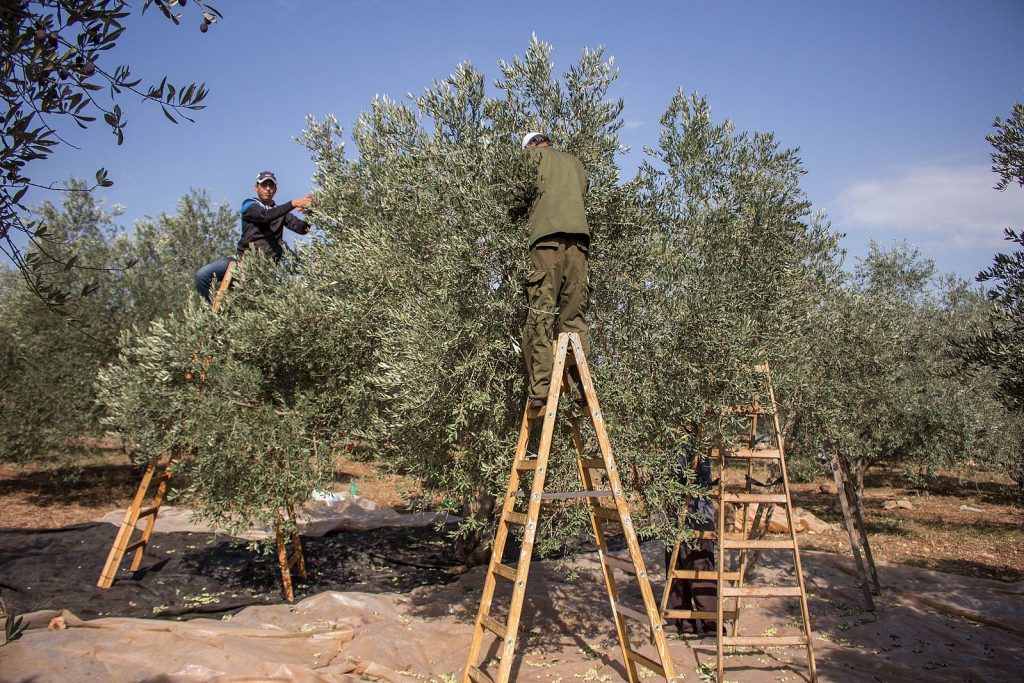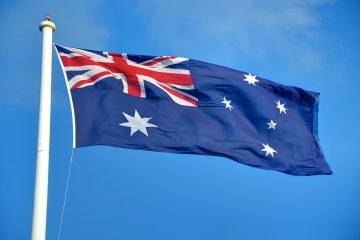Hydropolitics at the Core of the Israeli-Palestinian Conflict: An Examination of Water Control
The recent escalation of violence in the Middle East highlights the enduring complexity of the regional situation, rooted in nearly 75 years of tumultuous history. While this article does not aim to detail the historical background of the Israeli-Palestinian conflict, it focuses on a specific, often underestimated aspect of Israeli occupation: the Israeli management of water resources. The strategy of the Israeli state, often termed as a “war” or “apartheid” over water by human rights organizations such as Amnesty International, warrants a profound exploration to fully understand its implications and consequences. Israel’s management of and control over water resources are key mechanisms of power and control over the occupied territories, directly affecting the lifestyle of Palestinians. This hydropolitical lens offers an enriching perspective: it is essential to continue exploring and discussing the multidimensional impacts of occupation to work towards sustainable solutions that address the deep roots of this protracted confrontation.
Hydro Dominance: Israel’s Instrumentalization of Water in an Expansionist Quest
In the context of a Middle East parched by an intensifying climate crisis, Israel has established complete domination over the region’s water resources, utilizing this vital element to fuel its expansionist agenda. One of the most devastating repercussions of occupying Palestinian territories, which already represents a large-scale human rights violation in itself, lies in the impact of Israeli policy on Palestinians’ access to adequate drinking water. International law, as expressed by the United Nations Committee on Economic, Social and Cultural Rights, in its fifteenth General Comment, explicitly stipulates that an occupying power must respect the local populations’ right to water. Israel disregards these obligations, embodying an admitted violation of international humanitarian law. An act that, so far, has met no accountability, despite the grave and lasting consequences it imposes on the Palestinian people. The Israeli water apartheid policy isn’t limited to simple resource control; It’s part of a broader strategy aimed at supporting and perpetuating the occupation of Palestinian territories. The denial of access to adequate drinking water is an oppressive tactic that exacerbates the sufferings of Palestinians and maintains a cycle of domination and dependence.
With the occupation of Palestinian lands initiated in the late 1960s, Israel quickly seized water sources and hydraulic infrastructures. Ordinance 158 of 1967 forbids Palestinians from any hydraulic construction without Israeli military permission. Thus, digging a well, enlarging an existing reservoir, or even drawing water from the Jordan River becomes an almost impossible task for Palestinians. Even rainwater collection is scrutinized, with cisterns in the West Bank often destroyed by the Israel Defense Forces (IDF).
Despite a water-sharing agreement in 1993 and the recognition of “Palestinian water rights” by Israel during the Oslo II Accord in 1995, little progress has been seen. Today, in theory, in Area C, under total Israeli control, connecting one’s home to the Israeli hydraulic network requires having proof of land ownership or a permit from COGAT, the Israeli military body overseeing civilian activities in the Palestinian Territories: a very complex condition to meet for an Arab-Palestinian. Moreover, through a parallel water network managed by the Israeli national water company, Mekorot, Israel ensures the exclusive supply to its citizens, including those residing in illegal settlements, a practice contrary to Article 55 of the Regulations of the Fourth Hague Convention, stipulating that an occupying power doesn’t become the owner of water resources and cannot exploit them for the exclusive need of its civilians.
Israel’s military might also play a major role in imposing this hydropolitical will. “Closed military zones” are established, limiting Palestinians’ access to entire regions of the West Bank. The “Wall” of Gaza, security barricades, and checkpoints, are additional physical barriers hindering or delaying access to water. Water management in territories occupied by Israel reflects a strategy of silent repression, aiming to establish territorial control and shaping a humanitarian crisis that worsens as the climate crisis progresses.
The water distress experienced by Palestinians is unprecedented. According to the UN Office for the Coordination of Humanitarian Affairs (OCHA), over 180 Palestinian villages are deprived of running water, even when connected to the supply network. Donatella Rovera, author of the Amnesty report on “Water Occupation” in Israel, indicates that 200,000 Palestinians are in this situation. Although the Israeli Water Authority disputes these figures, they do not deny this form of discrimination against Palestinians. The disparities are glaring: Palestinians “survive” with an average of 73 liters of water per person per day, with 95 percent of it deemed unfit for consumption, well below the 100 liters recommended by the World Health Organization (WHO). In a striking contrast, Israeli settlers enjoy more than 300 liters per person per day. According to Amnesty International, nearly 450,000 Israelis consume as much, if not more, than all 2.3 million Palestinians. Rovera also highlights the unjust dichotomy represented by the settlers’ excessive water use for intensive irrigation, lush large gardens, and swimming pools, while Palestinians struggle to meet their fundamental needs.
These discriminatory practices have also driven up the price of water, as in the most disadvantaged Palestinian communities, water absorbs, on average, half of a family’s monthly expenses.
From Water to Identity: The Silent Crisis of Palestinians
The restrictions on water access imposed by Israel also erode the Palestinian identity deeply rooted in the land and agricultural traditions.
For the Palestinian people, the land is a tangible extension of their identity and a foundation of their cultural and historical heritage. Agriculture, a long-standing cornerstone of their society, is intrinsically tied to the dignity, autonomy, and well-being of Palestinians. Today, these age-old practices face threats from water deprivation, jeopardizing their profound connection to the Earth. For instance, the construction of the separation wall led to the destruction of over 100,000 olive trees, a potent cultural emblem, severely affecting numerous Palestinian farmers. In the occupied West Bank, recurring water shortages have forced farmers to shift from traditional crops to those requiring less water, erasing a facet of their ancient expertise. The agricultural transition – where Palestinian farmers have had to pivot from their traditional citrus production to less water-intensive, and thus less profitable crops, like tomatoes – reveals a cultural uprooting and a disconnection from their nurturing land, a central component in the identity of this agrarian people. As mentioned by Martin Middlebrook in his documentary “Eau secours” for the Franco-German television channel Arte, this water deprivation, beyond the physical challenges it poses, also instills a psychological and symbolic violence that erodes the very core of Palestinian identity.

“Palestinian farmers harvesting olives.” TrickyH. Creative Commons Attribution-Share Alike 3.0 Unported License
The bond with the land and their collective memory – manifested through shared tales of loss, resistance, and aspirations for a return to ancestral lands, echoing through specific representations and practices – remain pivotal elements of Palestinian identity. They shape both the Palestinians’ self-perception and how the external world perceives them. Depriving them of water is akin to stripping away a part of who they are, thereby weakening the anti-colonial narrative which, without its essence, loses its substance. The fight for water thus becomes, beyond a vital issue, a battle for preserving Palestinian identity against a silent yet devastating aggression.
As shown by Asmaa Ashraf in an article for The New Arab, Palestinians do not remain passive in the face of threats to their cultural and territorial identity. Their resistance is centered around the concept of ‘Sumud’, a cultural term which literally translates to ‘perseverance’ or ‘steadfastness’, but more significantly symbolizes their staunch determination to stay on their ancestral lands. This concept was revived by the Palestine Liberation Organization (PLO) in the 1960s to depict the mindset of Nakba survivors, and invoked again during the first Intifada in the 1980s to illustrate efforts towards self-sufficiency against collective sanctions imposed by Israel. Today, ‘Sumud’ defines the daily practices of Palestinians aiming to establish a stable and enduring life system despite the occupation. Sumud embodies a form of strategic perseverance and active resistance. It represents a rejection of the normalization of Israeli massive and daily violations of Palestinian rights. As Ashraf reports, this tendency is already evident in the narratives of some NGOs and governments, which often reduce Sumud to mere ‘resilience’. These interpretations reveal a lack of understanding of the complex dynamics of the climate crisis in Palestine and Palestinian resistance strategies. By portraying Palestinians as merely ‘resilient’ in the face of apolitical challenges, they obscure the structural and intentional nature of the injustices suffered by the Palestinian people. Discourses on resilience fail to accurately diagnose the climate crisis in Palestine, presenting the environmental impacts of the occupation as ‘risks’ rather than structural injustices.
Water, the Linchpin of Israeli Expansion and Key to Future Peace Dialogues
The significance of water in Israeli colonial designs becomes evident when considering that the water issue is inextricably linked to a potential final status in a future peace agreement : no healthy and stable relationship can ever be established without a fair and measured sharing of the region’s available water resources. It is not overshadowed by other pressing matters, such as the division of Jerusalem. In the arid context of the Middle East, water surpasses mere physical necessity to become a symbol of social justice and human rights. Hydraulic infrastructures, water allocation policies, and aquifer management are not just technical matters but battlegrounds where human rights are challenged and negotiated. The ramifications of water security extend well beyond daily needs, impacting individuals’ and communities’ dignity, health, and prosperity.
An analysis of existing water treaties and allocation policies underscores an urgency for a fair revision, in line with international human rights standards. It is crucial that regional stakeholders and the global community continue to emphasize the importance of water justice in the discourse on resolving the Israeli-Palestinian conflict.
“Protest for palestine Tunis Kassba 17-05-2021” Brahim Guedich. Creative Commons Attribution-Share Alike 4.0 Internation License




